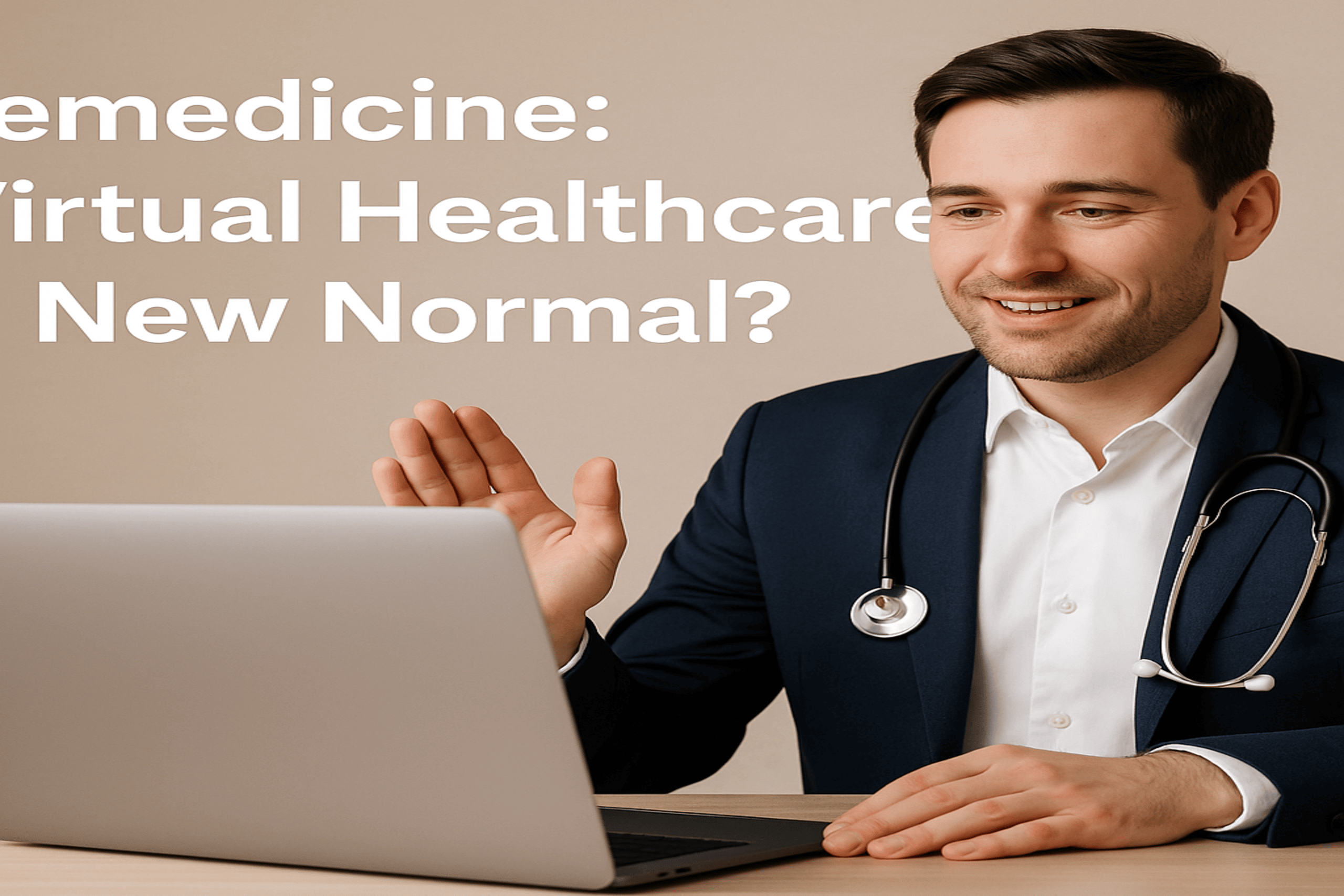A few years ago, the idea of seeing a doctor through your phone seemed futuristic—maybe even risky. But fast forward to today, and telemedicine is transforming from a backup option into a primary method of care. With virtual doctor visits, remote monitoring, and AI-powered diagnostics, healthcare has officially entered the digital age.
But is this new wave of virtual care just a temporary trend? Or are we witnessing a permanent shift in how healthcare works?
💡 What Is Telemedicine?
Telemedicine refers to the practice of delivering medical care remotely using technology—often via video calls, mobile apps, or secure messaging platforms. It includes everything from:
- Routine check-ups,
- Mental health therapy,
- Prescription renewals,
- Post-surgical follow-ups,
- To chronic disease management.
No traffic. No waiting rooms. Just care delivered wherever you are.
🔄 The COVID-19 Acceleration
While telemedicine existed before the pandemic, COVID-19 turbocharged its adoption. Hospitals were overwhelmed, physical distancing became essential, and patients needed safe, timely consultations. Virtual visits quickly became a lifeline.
According to McKinsey, telehealth usage was 38 times higher in 2021 than before the pandemic—and much of that momentum continues today.
📱 The Benefits of Virtual Healthcare
✅ Convenience and Accessibility
Patients in remote or underserved areas can now access top-tier specialists without traveling hours or days.
✅ Time and Cost Savings
No commute or long waits means fewer hours off work. Plus, many virtual visits cost less than in-person appointments.
✅ Improved Chronic Care
Devices like smart blood pressure monitors or glucose meters allow doctors to track patient health in real time.
✅ Mental Health Support
Online therapy platforms have opened the door for discreet, stigma-free support, especially for teens and working adults.
⚠️ But It’s Not All Perfect
As with any innovation, telemedicine comes with its challenges:
- Lack of physical exams can limit diagnosis accuracy.
- Tech literacy and internet access are still barriers for older adults or low-income households.
- Data security and privacy remain major concerns.
- Insurance policies and regulations vary widely between countries and states.
🧬 A Hybrid Healthcare Future?
Experts agree: telemedicine isn’t replacing traditional healthcare—it’s enhancing it.
We’re moving toward a hybrid care model, where in-person and virtual visits are balanced depending on the condition, urgency, and patient preference.
🗣️ “The future of healthcare will be flexible, digital-first, and patient-centered,” says Dr. Emily Tran, a digital health consultant.
📌 Final Thoughts
Telemedicine has proven it’s more than a pandemic-era fix. It’s reshaping the healthcare landscape—making it more accessible, efficient, and personalized.
While not every condition can (or should) be treated virtually, the question is no longer if telemedicine will stay, but how far it can go.
📲 Have you tried a virtual doctor visit yet? Was it convenient or complicated? Share your experience below!


